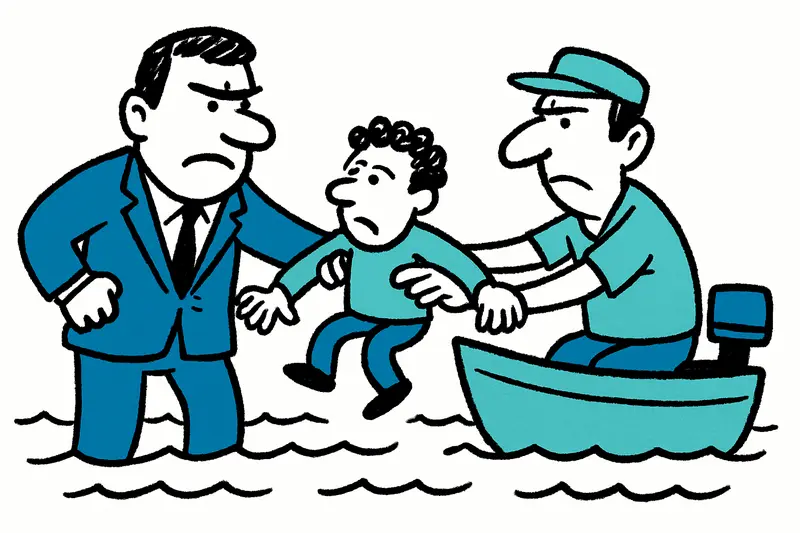After talks in Algiers, Madrid and Algiers plan to revive a repatriation agreement that has been little used for years. Arrivals on the Balearic Islands have risen noticeably.
New cooperation with Algeria: What is planned now
The Spanish interior minister traveled this week to Algiers to address a delicate issue: irregular migration across the western Mediterranean. There, representatives of both countries agreed to crack down more on smuggling networks and to put a repatriation agreement from the early 2000s back into force. In short: more cooperation, more information sharing, more controls.
Why this matters for us on the Balearic Islands
You can feel it here: The main route has shifted. While total arrivals in Spain by mid-October were down about 36%, the Balearic Islands recorded a significant increase – officially around 75% more than the previous year. Last Monday, two boats carrying a total of 42 people landed in our waters, one near Formentera, the other toward Cabrera. Much indicates that intensified controls elsewhere push movements northward and westward.
What Madrid and Algiers exactly plan: A joint commission should assess whether the old agreement needs modernization. They also want agencies to share information faster, fight forged travel documents, and curb the use of fast, small boats.
Between politics and reality
Cooperation is politically sensitive. Relations in North Africa have not been without tensions for several years, and questions about Western Sahara play a role. Algeria has repeatedly stressed that migration should not be used as a bargaining chip – a statement followed with careful attention here.
At the same time, aid organizations and UN statistics indicate that many of the arrivals originate from Algeria: according to UN figures, in the first eight months of this year more than half of the irregular entrants came from this country. Morocco and Somalia follow, but the numbers show why Spain is seeking talks with Algiers right now.
What people on the ground feel
At the port of Palma, people discuss it over a coffee: for many it means more controls at sea and on land, for others mainly more deployments by the coast guard and police. And honestly: the situation sometimes feels like a patchwork – a little more security in one place, more movements in another.
Conclusion: Reactivating the agreement is a step, but not a quick fix. As long as faulty documents, smuggling networks and political tensions persist, the situation remains volatile. The Balearics are likely to stay in focus – at least until the routes shift again.
Similar News

German Tourist Robbed at Ballermann – Phone Tracked Down in Romania
After a theft on Playa de Palma, a young German man managed to locate his smartphone via a tracking service—thousands of...

Balearic Islands Demand Permanent Daylight Saving Time – What It Means for Everyday Life Here
The Balearic Islands are pushing to permanently set the clock to daylight saving time. Especially gastronomy, tourism, a...

Sánchez to Abolish Daylight Saving Time — Mallorca Would Live Differently
The biannual clock change could end in 2026. For Palma and the coastal towns, daily life would feel noticeably different...

Balearic Islands push for permanent daylight saving time – what it means for Mallorca
The Balearic regional parliament wants permanent daylight saving time — citing concerns about sunset times, gastronomy, ...

25 Million Euros in Focus: Matthias Kühn to Appear in Palma Court
Palma-based real estate entrepreneur Matthias Kühn is to be questioned in Palma about possible tax offenses linked to ar...
More to explore
Discover more interesting content

Experience Mallorca's Best Beaches and Coves with SUP and Snorkeling

Spanish Cooking Workshop in Mallorca

Valldemossa and Valley of Sóller Tour in Mallorca

FUN Quad Mallorca

Shared 4-hour catamaran trip with tapas

